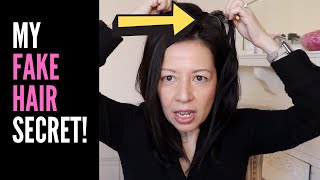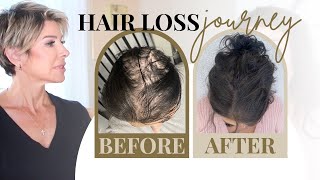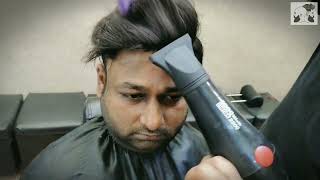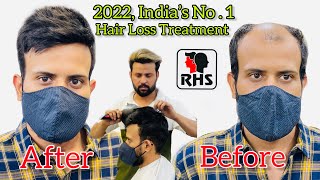Can Depression Cause Your Hair to Fall Out?
- Posted on 02 November, 2021
- Hair Knowledge
- By Emma & Stuart
Depression can affect a person’s life in numerous ways and varies from person to person in terms of severity and impact on their life, but can depression cause your hair to fall out?
Hair loss and hair thinning are often linked to the elevated stress levels in people suffering with mental illnesses such as depression and anxiety.
While hair loss can have a myriad of underlying causes, depression can cause hair thinning in those with the condition – this article will explore who can experience this, why it might happen and what you can do about it.
Who Can Lose Hair Due to Depression?
Living with depression is not a guarantee that you will experience hair loss, but anyone who has depression can be affected. If you are affected, there can be a variety of reasons that come into play:
STRESS: your depression can cause hair thinning or loss if you find yourself feeling particularly stressed for a prolonged period of time.
PHYSICAL FACTORS: for those with depression it can become overwhelming or impossible to do things like maintain a healthy diet or get enough sleep, and this can begin to impact hair growth.
ANTI-DEPRESSANTS: some medications for depression can increase the risk of losing your hair.
TRICHOTILLOMANIA & ALOPECIA AREATA: these are two hair-loss-related illnesses with a high co-morbidity rate with depression. Trichotillomania is the compulsive act of pulling out your hair, eyebrows or eyelashes. Alopecia areata is a (often genetic) hair loss condition which can be triggered by elevated stress levels.
Why Does Depression Make Your Hair Fall Out?
High levels of stress and some anti-depressants can contribute to a condition called ‘Telogen Effluvium’, wherein the same follicles can stop the growth and even enter the telogen (or resting) phase. Those follicles can then remain in that phase for around three months before shedding, so while depression can cause your hair to fall out, you may not see the impact for some time. In this case, it is possible that the hair loss will resolve itself, but if the stress is on-going it may be that the hair loss will continue until the stressor is removed or has subsided.
A poor diet can also be a major contributor to hair loss as iron deficiencies or an overabundance of certain vitamins might inhibit certain hair follicles from being able to produce new, healthy hair. It is not necessarily that depression makes your hair fall out, but that the ways depression can influence your life can make a difference.
For trichotillomania, the hair pulling is often compulsive and can be either a stress response or an idle distraction; the person may not even realise that they’re doing it. Alopecia areata is caused by inflammation, although why this occurs is largely unknown.
How to Combat Depression-Fuelled Hair Loss
If you believe you are suffering from hair loss, it is important that you speak to a GP or hair-loss specialist. If it is depression causing your hair to fall out or thin, you can discuss with them the best way to treat or prevent it.
For hair loss caused by depression, the key is to minimise the impacting physical factors over which you have control.
If your depression is linked to elevated stress levels or trauma (we have a useful article on hair loss caused by stress), it can help to see a GP or counsellor to address the underlying cause of the stress and begin to alleviate it.
If your depression causes you to have a poor diet, some people find it helps to create a plan in advance of what you will eat in the week rather than thinking about it day-to-day. Eating regular meals with the right components will not only help you feel better, but will encourage hair growth and health.
It is possible to treat trichotillomania with habit-reversal therapy and cognitive behaviour therapy (CBT) – replacing the bad habit with a healthier one can break the compulsion.
While alopecia areata cannot be cured, the British Association of Dermatologists lists many different treatment options to make the condition manageable, and in 4 out of 5 people with the condition, there is complete regrowth within a year.
Can depression cause your hair to fall out? Sometimes, sadly, yes, but it is important to remember that many types of hair loss are only temporary and can be treated. However, if you are concerned about your hair loss and you’d like to try a wig to regain your confidence, have a look at our guide to wearing a wig for the first time and give us a call – we’d love to help you find your perfect fit!




